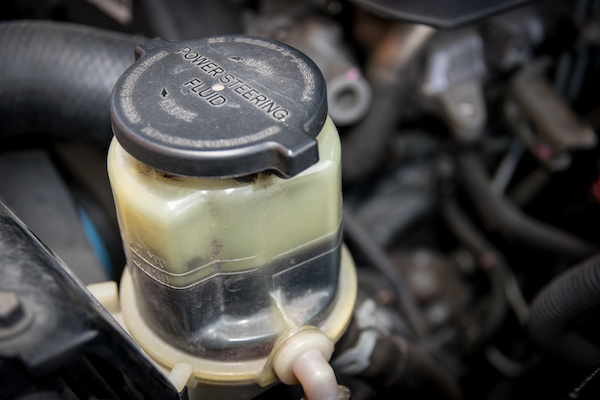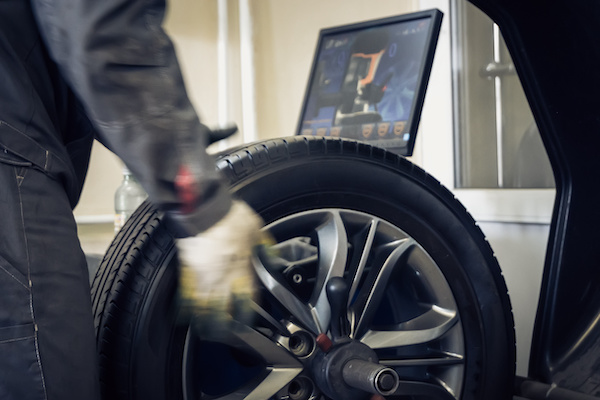Posted on 12/21/2022

From long shadows and blankets of snow to thin ice, the winter season can be exhilarating yet dangerous, especially for new drivers. According to the Federal Highway Administration, over 1300 individuals die while 116,800 sustain injuries annually due to snow, ice, and slushy pavements. So, how do I ensure safe driving during winter? Let's dive in! 1. Use Winter Tires Regular tires can fail when turning or making a stop on a snowy or slushy pavement as these conditions demand enhanced traction. So, anytime you are approaching the winter season get ready with winter tires to give you better control of your car. 2. Prepare Your Car Before you hit the road, you should prepare different car parts to ensure efficiency and smooth driving. You can start by checking whether your headlights, interior lights, and emergency flashers are functional. Suppose there are any worn blades; ensure you replace them. Then fill your vehicle's reservoir with quality winter fl ... read more
Posted on 12/20/2022

Audi vehicles are equipped with some of the most sophisticated braking systems on the market. At the heart of these systems are the brake pads. Audi brake pads are made from a high-performance ceramic compound that is designed to withstand extreme temperatures. When the brakes are applied, the pads press against the rotors, causing friction that slows the vehicle down. The Audi braking system also includes sensors that monitor pad wear and trigger a warning light when it is time to replace them. In addition, Audi brakes are equipped with a wear indicator that will make a loud squealing noise when the pads need to be replaced. By keeping an Audi's brake pads in good condition, drivers can ensure that their vehicle will stop safely in any situation. Warning Signs of Brake Pad Wear and Tear Audi brake pads are design ... read more
Posted on 11/30/2022
.jpeg)
There’s always going to be that one relative or random online article that claims they know the best practices when it comes to keeping vehicles in great shape. It can be hard to distinguish what is best, especially for your car’s specific make and model. Every car is different, right? Your habits may also look different depending on what you look for in a vehicle: efficiency or performance or a balance of both. We’re here to help you set the record straight – we’ll be going over the top 5 common misconceptions about auto maintenance. Change Your Oil Every 3000 Miles - 3,000 miles seems a long-time magic number in the automotive industry. While some auto shops still push this idea on customers, it is simply no longer a standard. Many newer vehicles with better engines can last up to 5,000 - 10,000 miles between oil change services, as they tend to use semi- or fully synthetic oils. The best way to ensure peak performance and save money on yo ... read more
Posted on 10/28/2022

Before we look in to whether it needs to be changed or not, let's talk about what power steering fluid is. Power steering fluid is a fluid that makes steering your vehicle easier. Power steering fluid is a very important in keeping your vehicle running. Your vehicle's power steering system can either be hydraulic or electric. The hydraulic system is the one which utilizes fluid in order to apply hydraulic pressure. The electronic system on the other hand uses electronic motors as well as other sensors. What is the Purpose of Power Steering Fluid? Power steering fluid is a type of fluid used within the steering system of a car. It is responsible for creating a link between the vehicle's steering wheel and its front wheels. It helps to lessen the effort you need to put in to turn your vehicle. Beside being a hydraulic fluid, it also lubricates other parts of the steering system that move. Lastly, it prevents corrosion of the power steering gear. There are different types o ... read more
Posted on 9/30/2022

With our busy lives, it can be easy to let automotive maintenance slip away from you. However, putting off maintenance can have more damaging effects than you think. You may be putting your and your passengers’ lives at risk. One of the most overlooked forms of maintenance is tire maintenance. Tires are the only part of your car that actually touches the road. So, obstacles, poor weather conditions, and other unexpected surprises on the road can put your car in danger. Tires and wheels naturally wear down over time. Because of how unpredictable the road can be, it can cause your wheels to go out of alignment or be unbalanced. Therefore, we highly recommend you have your tires and wheels inspected regularly. After a thorough wheel inspection, your mechanic may recommend a wheel balancing service. Even if your tires look fine, they can feel uneasy and shaky when your wheels aren’t balanced. Normally, your car should drive without any vibrations. To fix ... read more